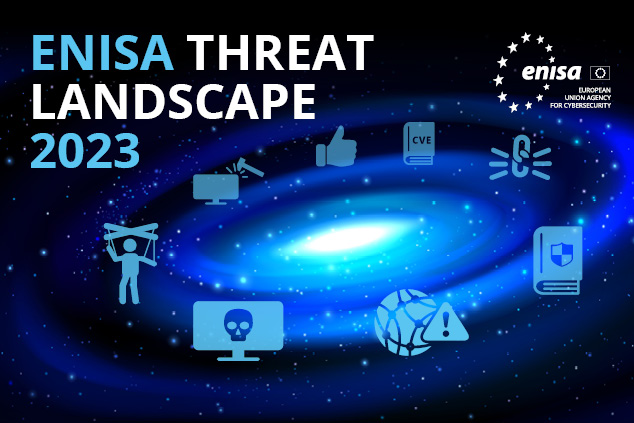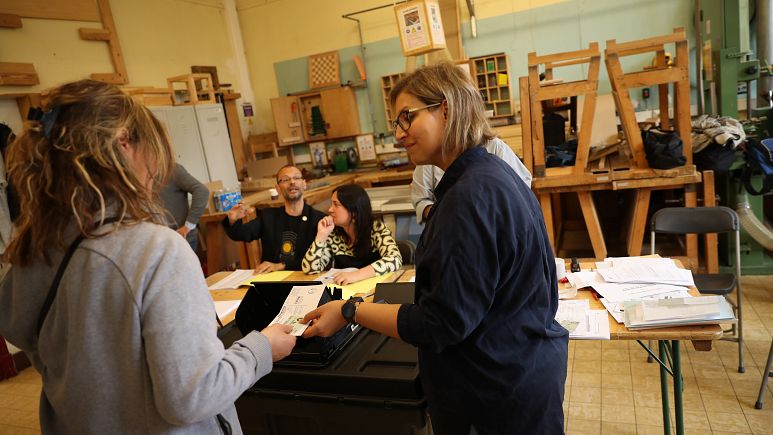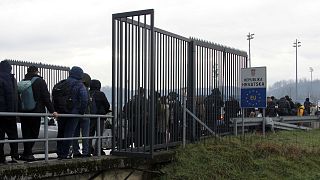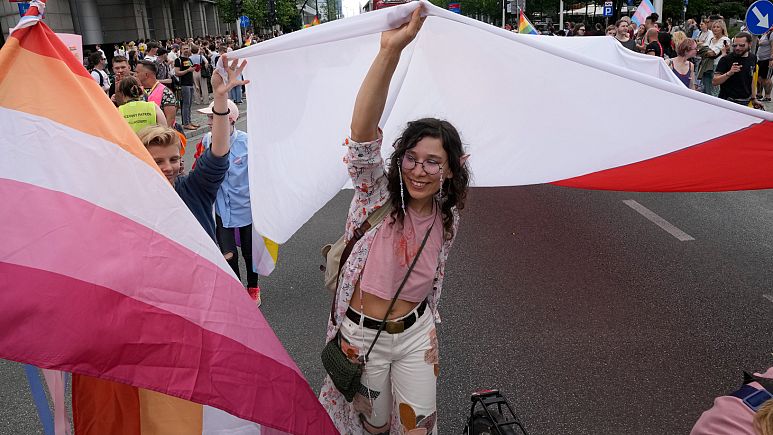IN THE SPOTLIGHT - INSIDE & OUTSIDE BRUSSELS BUBBLE
REGIONAL WARS. INTERCONNECTED
Following Hamas's terrorist attack on October 7, unlike anything Israel has witnessed in decades, the Western world is firmly affirming Israel’s right to defend itself and its right to "go after Hamas".
The world waits for a massive Israeli ground offensive in Gaza strip, recently visited by President Biden and UK Prime Minister following a deadly deadly blast which tore through Al-Ahli Baptist Hospital. Mr. Biden used his trip Wednesday to express firm support for Israel’s war against Hamas but also repeatedly urged Israelis to take care not to harm civilians in Gaza where around half of the population of 2,3 millions is under 18. President Biden also announced that the Israeli government would allow critically needed aid into the besieged Gaza Strip.
Relevant voices below:
> Hamas and Israel at war: what we know on day 13 with The Guardian
> Sunak follows Biden to Israel to show support as bombs hit Gaza and What is Israel’s endgame in Gaza invasion?with REUTERS
> Some differences remain as EU leaders seek cohesion on Israel-Hamas war, with EURACTIV
> Timeline to the Arab-Israeli conflict (contact us if you have difficulties in connecting) - FT
> Gaza : l'aide humanitaire attendue va pouvoir transiter par l'Egypte avec La Tribune
In the meantime, the Arab world is thinking differently about the war. By the time Israel issued its denial about which side carried out the strike against the hospital, details had ceased to matter. The catastrophe had sparked protests in the West Bank and Jordan, and as far away as Tunisia, Europe and the US. That was the maelstrom into which Joe Biden flew when he arrived in Israel on October 18th for a quick visit.
However, compared with past conflicts, a few things seem to look differently now.
> Read The Economist analysis The Arab world thinks differently about this war for more. Contact us if you cannot connect.
> Massacre at Gaza hospital triggers wave of indignation in the Arab world, with El Pais
-
After GazaFollowing Hamas's terrorist attack on October 7, the world is rightly affirming Israel’s right to defend itself. But political leaders on the front lines, and the international community more broadly, must start thinking about how to put the region on a path toward lasting peace and stability.
- PROJECT SYNDICATE, 18 October 2023
-
What is Israel’s endgame in Gaza invasion?
/cloudfront-us-east-2.images.arcpublishing.com/reuters/527O7ECX3VISTEMZPDORIS6CNU.jpg) Israel is vowing to wipe out Hamas in a relentless onslaught on the Gaza Strip but has no obvious endgame in sight, with no clear plan for how to govern the ravaged Palestinian enclave even if it triumphs on the battlefield.
Israel is vowing to wipe out Hamas in a relentless onslaught on the Gaza Strip but has no obvious endgame in sight, with no clear plan for how to govern the ravaged Palestinian enclave even if it triumphs on the battlefield.
Codenamed "Operation Swords of Iron", the military campaign will be unmatched in its ferocity and unlike anything Israel has carried out in Gaza in the past, according to eight regional and Western officials with knowledge of the conflict who declined to be named due to the sensitivity of the matter.
EU COUNTER-TERRORISM POLICY
Since the outbreak of the Israel-Hamas conflict almost two weeks ago, a sense of unease has spread in Europe over fears of reverberations at home. A teacher was stabbed in France, and three people were shot in Belgium in incidents politicians have linked to terrorism. Airports and other public places had to be evacuated owing to bomb threats.
Against this background, the EU's efforts to tackle terrorism have re-emerged as a central topic.
In the briefing 'Understanding EU counter-terrorism policy', the EP Think Thank illustrates the role of EU in providing cooperation, coordination and (to some extent) harmonisation tools, as well as financial support, to address this borderless phenomenon.
To understand the EU policy on the radicalisation of terrorists, the in-dept analysis 'Preventing radicalisation in the European Union: How EU policy has evolved' explains the disagreements around the concept of radicalisation and how the EU policy-makers framed their work in order to target this process.
Source: Europol’s annual EU terrorism situation and trend reports (from 2011 to 2022). Figures between 2010 and 2019 include the UK.
TERRORISM-RELATED ARRESTS IN THE EU (2021)
Source: Europol’s annual EU terrorism situation and trend reports (from 2011 to 2022). Figures between 2010 and 2019 include the UK.
>For more, here.
Responding to the evolving nature of terrorism threats in Europe, the Council of Europe adopted in February a counter-terrorism strategy for 2023-2027 which offers new tools and concrete responses to continuous and emerging challenges faced by state authorities.
UKRAINIAN CITIES FOSTER INTERCONNECTIONS WITH THEIR EU PARTNERS
Representatives of the European Committee of the Rehions (CoR) travelled to Lviv, the largest city in western Ukraine, to see how see how cities and regions in the EU can help Ukrainian local and regional governments with their emergency needs, with reconstruction and with EU-related reforms. The mayor of Lviv called for every Ukrainian region and city to have an EU partner.
The development of territorial cooperation between European and Ukrainian local and regional authorities (LRAs) is considered as an important step toward Ukraine’s membership in the EU.
The 'Cooperation between EU cities and regions with their Ukrainian partners' study presents the benefits of and barriers to the collaboration between European and Ukrainian cities and regions and shows the role of the EU programmes and instruments in supporting territorial cooperation. It suggests solutions that can promote cooperation between cities and regions and describes their potential to strengthen the capacities of self-governments and to support civil society in Ukraine.
Source: European Parliament
Source: European Parliament
Source: European Parliament
THE LATEST IN BELGIUM
L'attaque terroriste survenue lundi soir, qui a causé le décès de deux personnes et blessé gravement un ressortissant suédois, tous trois venus assister à un match de football à Bruxelles met en évidence la nécessité d’une coopération européenne renforcée en matière de politique migratoire.
"Dans le cas de l’attaque terroriste, nous ne négligerons pas le fait que l’immigration clandestine a joué un rôle important dans ces événements tragiques. C’est pourquoi nous devons nous concentrer sur deux dimensions européennes à savoir, une meilleure protection de nos frontières extérieures et, plus important encore, une politique de retour plus résolue et mieux coordonnée pour les immigrés clandestins".
Alexander De Croo, Premier Ministre belge
Source: RTBF
-
Questions mount over security failures in Brussels terror attack
 "When two people die, the only thing you can say is that things have gone wrong," Belgium's prime minister Alexander de Croo admitted to reporters on Wednesday (18 October). And he said questions needed to be answered in order to impose policy changes, in light of a slew of security failures from the 2016 terror attacks in Brussels.
"When two people die, the only thing you can say is that things have gone wrong," Belgium's prime minister Alexander de Croo admitted to reporters on Wednesday (18 October). And he said questions needed to be answered in order to impose policy changes, in light of a slew of security failures from the 2016 terror attacks in Brussels. -
‘We are not robots’: Brussels’ plan to go digital triggers protests
 Social service workers are among those protesting a plan to make Brussels less bureaucratic, arguing this exacerbates the digital divide.
Social service workers are among those protesting a plan to make Brussels less bureaucratic, arguing this exacerbates the digital divide.
EU FILES with regional/local impact
EU ENLARGEMENT AND EU INSTITUTIONAL REFORM
The European Union must radically overhaul its decision-making and funding before it can accept more countries to join the 27-nation bloc by 2030, a paper commissioned from experts by the French and German governments said, polarising EU countries.
Eight countries currently have official EU candidate status - Turkey, Ukraine, Moldova, Albania, Bosnia and Herzegovina, Montenegro, North Macedonia and Serbia - while two, Georgia and Kosovo, are potential candidate countries.
Source: Report of the Franco-German working group on EU institutional reform
> To read the report, here
> To read some criticism, here
> For more, here
EU BUDGET
EU Parliament pushes for extra €6.3bn for 2024 budget : The EU budget needs a boost to provide "adequate" financial support to those who need it most and to respond to ongoing and future crises, MEPs agreed at Thursday's (18 October) plenary session in Strasbourg. With 424 votes in favour, 101 against and 102 abstentions, the European Parliament set out its position for the inter-institutional negotiations to amend the EU budget for 2024 — deciding how much more money should be spent and where.
>More with EU Observer here.
EURO / ECB
The EU is one step closer to its very own digital currency, after the European Central Bank announced yesterday (18 October) that it would start preparations on the digital euro.
To critics who asked whether we even need digital euros the ECB president Christine Lagarde replied : “We need to prepare our currency for the future” adding that adding that a digital euro would "coexist alongside physical cash" while "leaving no one behind".
From China to the United States, Jamaica to Japan, more than 100 central banks worldwide are exploring or preparing to put in place digital currencies as electronic payments grow, changing the way people spend their money.
> A stocktake on the digital euro, ECB Report - 18 October 2023
DIGITAL
EU starts investigating Meta, TikTok over Hamas content - The Commission has given the firms until October 25 to provide information about measures they’ve taken to curb the spread of illegal content.
After X, Meta's Facebook and Instagram as well as TikTok are under close scrutiny over potentially breaching the European Union's content moderation law, the Digital Services Act (DSA), for content related to the Israel-Hamas conflict.
> More here, with POLITICO.
STATE of DEMOCRACY in the EU - EUROPEAN ELECTIONS!
-
EU Elections at Risk with Rise of AI-Enabled Information Manipulation
 The European Union’s 2024 election is at risk from artificial intelligence chatbots and deepfake images and videos, the bloc’s cybersecurity agency ENISA said Thursday.
The European Union’s 2024 election is at risk from artificial intelligence chatbots and deepfake images and videos, the bloc’s cybersecurity agency ENISA said Thursday.
There had been a surge in AI chatbots, deepfakes and similar technology, the agency said in its annual Threat Landscape report mapping cybersecurity threats in Europe. Governments and the private sector — and media in particular — should be on high alert ahead of the European Parliament election next
year to spot, debunk and fight AI-generated disinformation online, it said.
-
Why Western democracy faces a nightmare made onlineIn 2024 — for the first time ever — the U.S., the U.K. and the EU will hold major elections in the same calendar year. Dozens of other countries, including India and potentially Ukraine, are also expected to hold nationwide votes.
This motherlode of election cycles is poised to reshape the leadership of the Western world.
Yet never before has the integrity of democracy been in so much danger, thanks to the transformation of political campaigning in recent years into a war waged largely online.
-POLITICO PRO, October 3, 2023
-
Q&A: EU regions' champions lay out vision
 Over the weekend of 13-14 October, the European Free Alliance (EFA) chose Raül Romeva, 52, and Maylis Roßberg, 23, as its leading candidates — the so-called 'Spitzenkandidaten' — for the 2024 EU elections. Romeva is a Spanish economist and politician who was imprisoned for four years after the 2017 illegal referendum in Catalonia, while Roßberg is a political science and history student from the Danish minority living in Germany.
Over the weekend of 13-14 October, the European Free Alliance (EFA) chose Raül Romeva, 52, and Maylis Roßberg, 23, as its leading candidates — the so-called 'Spitzenkandidaten' — for the 2024 EU elections. Romeva is a Spanish economist and politician who was imprisoned for four years after the 2017 illegal referendum in Catalonia, while Roßberg is a political science and history student from the Danish minority living in Germany. -
Sweet sixteen: Belgium lowers voting age to 16 for European Parliament elections
 It is the fourth EU member state to reduce voting ages for European Parliament elections after Austria, Greece, and Malta. An estimated 270,000 teenagers -- both from Belgium and other EU member states -- will be allowed to cast their ballots in the 2024 European Parliament elections.
It is the fourth EU member state to reduce voting ages for European Parliament elections after Austria, Greece, and Malta. An estimated 270,000 teenagers -- both from Belgium and other EU member states -- will be allowed to cast their ballots in the 2024 European Parliament elections. -
Germany bewildered about how to halt the rise of the AfD
 In Germany, news regarding the seemingly unstoppable rise of the right-wing Alternative for Germany (AfD) appears on an almost weekly basis. But nowadays this isn’t just true of the notoriously AfD-friendly states in east Germany, it’s also spreading further west.
In Germany, news regarding the seemingly unstoppable rise of the right-wing Alternative for Germany (AfD) appears on an almost weekly basis. But nowadays this isn’t just true of the notoriously AfD-friendly states in east Germany, it’s also spreading further west.
MIGRATION AND ASYLUM
-
Tunisia's medicine shortages drive people to Europe for drugs
 Once every three months, Selwa exchanges about two hundred dinars for €50 on the Tunisian black market. With a medical prescription, she gives the money to her brother — who often travels to France — and asks him to buy medicines and bring them to Tunisia. "Luckily, the French airport pharmacy still accepts our Tunisian prescription," she explains. "I wonder, though, how far we have come if we, an upper-middle class family, find ourselves unable to access medical treatment."
Once every three months, Selwa exchanges about two hundred dinars for €50 on the Tunisian black market. With a medical prescription, she gives the money to her brother — who often travels to France — and asks him to buy medicines and bring them to Tunisia. "Luckily, the French airport pharmacy still accepts our Tunisian prescription," she explains. "I wonder, though, how far we have come if we, an upper-middle class family, find ourselves unable to access medical treatment." -
EU states spending development aid on themselves, report finds
 Almost €14bn of European official development assistance ends up in a handful of rich member states — instead of going towards low-income nations in need around the globe, a new report finds.
Almost €14bn of European official development assistance ends up in a handful of rich member states — instead of going towards low-income nations in need around the globe, a new report finds. -
Analysis: Brussels attack underlines challenges for new EU migration pact
 Obstacles to repatriating migrants deemed to have no right to stay in the EU will be on the table when the bloc's 27 justice and home affairs ministers meet in Brussels - scene of the shooting and also home to EU institutions - today and Friday.
Obstacles to repatriating migrants deemed to have no right to stay in the EU will be on the table when the bloc's 27 justice and home affairs ministers meet in Brussels - scene of the shooting and also home to EU institutions - today and Friday. -
EU calls for tougher visa suspension rules to address security risks
 The European Commission has proposed sharpening its visa suspension rules to address the "abuse" of visa-free travel in Europe. The revised rules would give the EU more flexibility to temporarily suspend its visa-free travel schemes, including when it considers that third countries' policies could lead to increased migrant arrivals to the EU.
The European Commission has proposed sharpening its visa suspension rules to address the "abuse" of visa-free travel in Europe. The revised rules would give the EU more flexibility to temporarily suspend its visa-free travel schemes, including when it considers that third countries' policies could lead to increased migrant arrivals to the EU.
GRASSROOTS RESILIENT EUROPE
RESILIENT KHARKIV
Ukrainian city goes underground to defy Russian missiles: a new subterranean school is part of a plan to entice exiles back to Ukraine’s second-largest city - With the nearest Russian rocket batteries just 40 seconds flight time away and still targeting his city 20 months after Moscow’s full-scale invasion, the grizzled politician has ordered workers to build an underground school for up to 1,000 children by the end of the year.
As part of a shift to a subterranean parallel order for Ukraine’s second city, he has also pledged to build Kharkiv’s first underground depot for metro trains next year; metro stations are already hosting five primary schools.
> More here, with FT or contact us in case of connection issues.
Courtesy of FT
THE STATE OF REGIONS AND CITIES - EU ANNUAL REPORT
The EU Annual Report on the State of Regions and Cities is a snapshot of the most pressing challenges faced by regions and cities across Europe, as well as solutions from the ground to inform EU policy decisions. It provides insights on how regions and cities address crisis, such as climate disasters or the Russian war against Ukraine. It will show how regions and cities contribute to the long-term transformation of our societies, with the green and digital transition, while strengthening cohesion.
Citizens' awareness and perception of EU Regional policy
The results of this new Eurobarometer (October 2023) survey show that the overall awareness of EU funded projects is at 39%, which represents an increase of 5 percentage points compared to 12 years ago. Out of the respondents who are aware of EU funded projects, 79% think that they have a positive impact on the regions. 46% of respondents have heard about the European Regional Development Fund (ERDF) and/or the Cohesion Fund, and 45% have heard about the European Social Fund while 29% of respondents have heard about REACT-EU or NextGenerationEU.
63% of respondents say that the EU should invest in all its regions, while 33% say the EU should only invest in the poorer regions.
Source: Eurobarometer
Source: Eurobarometer
TOWARDS HYBRID INTELLIGENCE - WORK TRENDS
-
Microsoft's new AI assistant can go to meetings for you
 A ChatGPT-style AI assistant, developed by Microsoft and embedded into its office apps, will become available to all from 1 November, following trials.
A ChatGPT-style AI assistant, developed by Microsoft and embedded into its office apps, will become available to all from 1 November, following trials.
Microsoft 365 Copilot can summarise meetings held in Teams for anyone who chooses not to attend.
It can also draft emails, create word documents, spreadsheet graphs, and Powerpoint presentations in moments.
Microsoft says it hopes the tool will eliminate "drudgery" but some worry tech like this will replace workers. -
All eyes (or at least, some eyes) on the UK’s AI Safety Summit
 The United Kingdom of Great Britain and Northern Ireland will soon be playing host to all manner of foreign leaders and tech execs at the AI Safety Summit on November 1-2. Or at least the second half of that statement is correct: The U.K. hasn’t managed to confirm a single head of government yet, which could make for an awkward family photo at an event that Rishi Sunak is eyeing as his chance at international stardom (though the ongoing conflict in the Middle East could provide cover for the no shows).
The United Kingdom of Great Britain and Northern Ireland will soon be playing host to all manner of foreign leaders and tech execs at the AI Safety Summit on November 1-2. Or at least the second half of that statement is correct: The U.K. hasn’t managed to confirm a single head of government yet, which could make for an awkward family photo at an event that Rishi Sunak is eyeing as his chance at international stardom (though the ongoing conflict in the Middle East could provide cover for the no shows).
WOMEN RISING UP!
-
Jina Mahsa Amini and Iranian women protest movement win the 2023 Sakharov Prize
 MEPs have awarded the 2023 Sakharov Prize for Freedom of Thought to Jina Mahsa Amini and the Woman, Life, Freedom Movement in Iran.
MEPs have awarded the 2023 Sakharov Prize for Freedom of Thought to Jina Mahsa Amini and the Woman, Life, Freedom Movement in Iran. -
Climate crisis is ‘not gender neutral’: UN calls for more policy focus on women
 Only a third of countries include sexual and reproductive health in their national plans to tackle the climate crisis, the UN has warned. Of the 119 countries that have published plans, only 38 include access to contraception, maternal and newborn health services and just 15 make any reference to violence against women, according to a report published by the UN Population Fund (UNFPA) and Queen Mary University of London.
Only a third of countries include sexual and reproductive health in their national plans to tackle the climate crisis, the UN has warned. Of the 119 countries that have published plans, only 38 include access to contraception, maternal and newborn health services and just 15 make any reference to violence against women, according to a report published by the UN Population Fund (UNFPA) and Queen Mary University of London.
EU YOUTH GENERATION - ONE LIFE!
-
Coming-of-age — what do young want from the 2024 EP election?
 In the last EU elections in 2019, turnout among young people was the lowest of all age groups, even though it was up.
In the last EU elections in 2019, turnout among young people was the lowest of all age groups, even though it was up.
According to the post-election eurobarometer survey, turnout increased by 12 percentage points among the under-25s and by 14 percentage points among the 25-39s.
The outlook for the 2024 European elections, which will be held between 6 and 9 June 2024, is brighter. Comparing young people's attitudes one year before the elections, their interest has increased by six percent (to 49 percent).
However, their intention to vote is still lower than that of the rest of the population (55 percent, contrasted with 67 percent). That deficit is despite the fact that many of those young people are involved in some form of activism. Nine-out-of-ten respondents to the last European Youth Survey claim to have taken part in at least one political or civic activity in 2021. -
How Gen Z uses technology — flip phones, digital cameras, voice memos
 It’s no secret that Generation Z grew up surrounded by technology, but the way these youngsters use certain features and gadgets may surprise you. Generation Z, commonly referred to as Gen Z or Zoomers, is made up of people born after 1997, according to the Pew Research Center. They have already witnessed the rise of smartphones, social media and, more recently, artificial intelligence in their lifetimes, but that doesn’t mean they’ve counted out the ghosts-of-devices-past. For instance, they have embraced old-school digital cameras. The hashtag #digitalcamera has more than 1 billion views on TikTok after the devices were popularized by Gen Z’s desire to strike a more casual, nostalgic tone with their photos.
It’s no secret that Generation Z grew up surrounded by technology, but the way these youngsters use certain features and gadgets may surprise you. Generation Z, commonly referred to as Gen Z or Zoomers, is made up of people born after 1997, according to the Pew Research Center. They have already witnessed the rise of smartphones, social media and, more recently, artificial intelligence in their lifetimes, but that doesn’t mean they’ve counted out the ghosts-of-devices-past. For instance, they have embraced old-school digital cameras. The hashtag #digitalcamera has more than 1 billion views on TikTok after the devices were popularized by Gen Z’s desire to strike a more casual, nostalgic tone with their photos. -
Comment appréhender l’arrivée de la génération Z, qui a entre 18 et 27 ans, sur le marché du travail ?
 Quelles sont les caractéristiques de la génération Z, qui représente les jeunes nés entre 1995 et 2010, dans la recherche d’emploi ? Quelles sont ses aspirations et ses attentes ? Comment appréhender l’arrivée de cette nouvelle génération dans le monde du travail ?
Quelles sont les caractéristiques de la génération Z, qui représente les jeunes nés entre 1995 et 2010, dans la recherche d’emploi ? Quelles sont ses aspirations et ses attentes ? Comment appréhender l’arrivée de cette nouvelle génération dans le monde du travail ?
HUMAN RIGHTS - LGBT RIGHTS
-
Could Poland's controversial LGBT-Free Zones finally be consigned to history?
 LGBT-Free Zones established years ago in Poland remain valid in a legal system controlled by right-wing conservatives. The country's human rights representative is determined to fight them one by one.
LGBT-Free Zones established years ago in Poland remain valid in a legal system controlled by right-wing conservatives. The country's human rights representative is determined to fight them one by one. -
LGBTQ+ volleyball champion hits a nerve in Turkey’s culture war
 Turkey’s women volleyballers may have won the European championship last month but the presence of a prominent LGBTQ+ star in the team has reopened the country’s bitterly divisive culture war.
Turkey’s women volleyballers may have won the European championship last month but the presence of a prominent LGBTQ+ star in the team has reopened the country’s bitterly divisive culture war.
MORE IN DEPTH. STAY CURIOUS!
BREATHE...
Welcome to Weekly Mindful Moment at the Committees!
The Weekly Mindful Moment takes place every Monday at 14:15 in room Mazzanine (B100 - 8th floor).
It is a space where we can get together and practice different kind of meditations, switching from "doing" to "being". You can find here more information about the initiative.
No worries if you cannot attend at some point. Happy to meet you any time next time! 😊
Warmly,
Courtesy of Gaia
READING TIPS
Interested in Financial Times, Contexte, The Economist, Agence Europe or Politico PRO annual subscriptions? Interested in E-books? Just contact us!
- Unlimited access to PressReader (i.e. as many newspapers and magazines you can read…) is available HERE.
- Unlimited access to The ECONOMIST is available via your OnePC or inside CoR/EESC premises.
- For unlimited access to the Financial Times, please contact documentationCdR@cor.europa.eu for assistance.
- You definitely have full access to CONTEXTE! If you wish to join the platform as a new CoR user, please inform us.
- Problems connecting to AGENCE EUROPE? Take your access from HERE.
- Missing POLITICO’s newspaper? Every Thursday, POLITICO journalists assemble a weekly e-paper that you can read here, or via the dedicated POLITICO app (available on Apple Store or Google Play Store).
- Access to Harvard Business Review e-books, thousands of publications, EU Observer and many other resources available HERE, on our Intranet page.
- getAbstract is available for all CoR (members and staff)! Click here to connect!
- Problem to register? Contact documentationCdR@cor.europa.eu for assistance.
- Start enjoying your summaries anytime, anywhere!
- Once you registered, help us customize the CoR specific topics section. Found an interesting article, book or podcast? Send it to us and we'll do our best to have it summarized on getAbstract platform!
Happy to help you get access to all these contents! Please do not hesitate to reach out in case of connection problem or if you have questions or suggestions.
For more contents, make sure you integrate into your reading/ intellectual fitness habits GoodRead, Library's search engine & reading platform. Thousands of contents are waiting for you there!
Documentation Centre's resources are available here on Intranet!
















